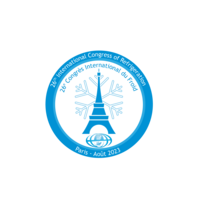
Document IIF
Réduction des émissions de gaz à effet de serre de la chaîne du froid dans les industries du poisson et de la viande en Norvège.
Reducing cold chain GHG emissions in Norwegian fish and meat industry sectors.
Numéro : 0470
Auteurs : DALSVÅG H., STRAND A. V., WIDELL K. N.
Résumé
The food chain represents a climate impact of major concern as it is a significant source of greenhouse gas (GHG) emissions. Norway has a long coastline with perfect conditions for salmon farming and well-established fisheries, in addition to a large area suitable for grazing, making seafood and meat important food sectors. Several companies in Norway have already taken steps to reduce emissions, while many still have a long way to go. In this paper, measures to reduce GHG emissions in the meat and seafood industry and the possibilities for reaching the goal of climate neutral food businesses are explored. The focus is post-harvest gate with emphasis on refrigeration. The objective was to identify the needs and measures of greatest impact within the Norwegian food industry. For that aim, interviews and a workshop with relevant companies were performed to share knowledge, discuss challenges, and create synergies. This paper summarizes the activities, the results, and the conclusions.
Documents disponibles
Format PDF
Pages : 9
Disponible
Gratuit
Détails
- Titre original : Reducing cold chain GHG emissions in Norwegian fish and meat industry sectors.
- Identifiant de la fiche : 30031338
- Langues : Anglais
- Sujet : Environnement, Généralités
- Source : Proceedings of the 26th IIR International Congress of Refrigeration: Paris , France, August 21-25, 2023.
- Date d'édition : 21/08/2023
- DOI : http://dx.doi.org/10.18462/iir.icr.2023.0470
Liens
Voir d'autres communications du même compte rendu (491)
Voir le compte rendu de la conférence
Indexation
-
Thèmes :
Chaîne du froid, interfaces;
Poissons et produits de la mer;
Viande et produits carnés;
Généralités sur l'environnement (changements climatiques, appauvrissement de l'ozone…) - Mots-clés : Chaîne du froid; Marché; Produit de la mer; Émission de CO2; Industrie alimentaire; Norvège; Pêche (activite); Durabilité; Empreinte carbone; ENOUGH
-
Mapping Greenhouse Gas emissions from the food ...
- Auteurs : TRAORE A., LAGUERRE O., ALLOUCHE Y., DELAHAYE A.
- Date : 21/08/2023
- Langues : Anglais
- Source : Proceedings of the 26th IIR International Congress of Refrigeration: Paris , France, August 21-25, 2023.
- Formats : PDF
Voir la fiche
-
Baseline refrigeration emissions in the UK.
- Auteurs : FOSTER A., BROWN T., EVANS J.
- Date : 11/04/2022
- Langues : Anglais
- Source : 7th IIR International Conference on Sustainability and the Cold Chain (Online). Proceedings: April 11-13 2022
- Formats : PDF
Voir la fiche
-
An innovative tool to evaluate and optimize GHG...
- Auteurs : LEDUCQ D., EVANS J., VERBOVEN P., ALVAREZ G.
- Date : 21/08/2023
- Langues : Anglais
- Source : Proceedings of the 26th IIR International Congress of Refrigeration: Paris , France, August 21-25, 2023.
- Formats : PDF
Voir la fiche
-
Refrigeration and sustainability in the seafood...
- Auteurs : NORDTVEDT T. S., WIDELL K. N.
- Date : 26/08/2020
- Langues : Anglais
- Source : 6th IIR International Conference on Sustainability and the Cold Chain. Proceedings: Nantes, France, August 26-28 2020
- Formats : Vidéo, PDF
Voir la fiche
-
Sustainability within food cold chain sectors i...
- Auteurs : WIDELL K. N., VINGELSGARD E., DALSVÅG H., MEHTA S., NORDTVEDT T. S.
- Date : 21/08/2023
- Langues : Anglais
- Source : Proceedings of the 26th IIR International Congress of Refrigeration: Paris , France, August 21-25, 2023.
- Formats : PDF
Voir la fiche
